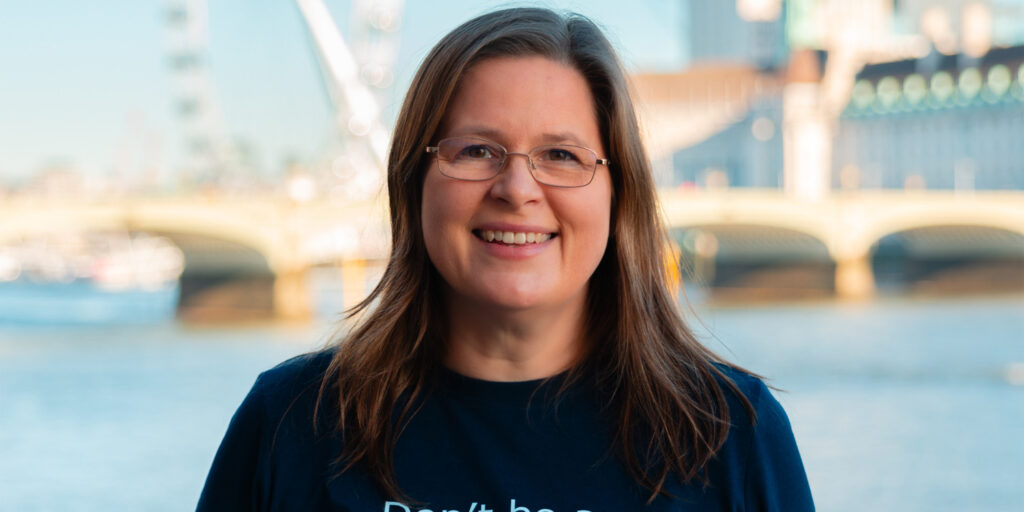For small businesses in the UK, 2023 was a huge year following the formation of 900,006 companies, the highest number ever incorporated in a single calendar year, a 12% year-on-year increase.
On top of that, it was also a record-breaking year for women founders, with 164,000 incorporations at Companies House (the UK government’s company registrar), an upward trend that has grown so fast in recent years that 2023’s figure is more than double 2018’s.
In this interview, Michelle Ovens CBE, founder of Small Business Britain (the UK’s leading champion of small businesses) discusses these exciting trends, as well as some of the policy changes needed to break down barriers to financing for women founders and disabled founders, two demographics that Small Business Britain advocates for very strongly.
Q: Why are women starting their own businesses, more than ever before?
A: There has certainly been a marked rise in female entrepreneurs, particularly since the pandemic. From our research, one of the primary drivers for this is a desire from women for better work/life balance. 39% of women we surveyed across our female founder ‘f:Entrepreneur’ community last summer said they started up for this reason.
Women also tend to value the flexibility that comes with working for themselves – 74% feel they now have greater flexibility, whether it is to spend more time with family, interact with their communities, or dedicate more time to personal goals or other circumstances. And 86% say they feel happier as a result.
We have also seen a keenness to pursue a passion – 36% of the female founders we spoke to had an idea, a purpose they wanted to focus on, and often this passion has grown as the business has grown.
Q: What is one key area of policy that the Government must focus on to better support more women going into business?
A: Access to finance for small businesses is a really important area that we would like to see the Government focus on supporting. This issue can particularly affect female founders, so it is great that the Invest in Women Taskforce has been launched to give real focus to this.
The current code for investing in women needs to be beefed up, to focus on funding at all levels, to reflect the type of finance that female business owners at the grassroots want to access. A lot aren’t just looking for VC funding, they are looking for small loans, scale-up loans, flexible loans, etc.
There can also be a real lack of awareness of available funding options, leading plenty of women to dip into their own savings, or not seek out external funding at all. With more support and education, female founders will have access to the resources they need to set up new ventures and scale them.
Q: Could you share how you are advocating for disabled people in business?
A: Earlier this year, Small Business Britain launched The Lilac Review, a new independent, Government-backed Review, aiming to tackle the inequality faced by disabled entrepreneurs and elevate opportunity across the UK.
Estimates suggest that improving opportunities for disabled founders could unlock an additional £230bn for the UK economy. Disabled entrepreneurs currently account for approximately 25% of the nation’s 5.5 million small businesses, but only 8.6% of total small business turnover. And four-fifths feel they have unequal access to opportunities and resources.
Operating over a two-year period, The Lilac Review will undertake extensive research and analysis to identify and remove challenges faced by disabled entrepreneurs. We will be sharing interim findings in May, with a final report shared in late 2025, that will include recommendations and a call to action for driving positive change across society.
The Review is co-chaired by two Government Ministers – Minister for Small Business, Kevin Hollinrake MP, and Minister for Disabled People, Mims Davies MP, alongside Victoria Jenkins, founder of adaptive fashion brand Unhidden and leading advocate for disability inclusion.
While we are closely working with the Government on this issue, there will undoubtedly be recommendations for the Government and the public sector, alongside the private sector, whether that is around how we ensure inclusion and accessibility in entrepreneurship, or access to finance and investment.
Q: Beyond women and disabled founders, are there areas of growth for small businesses that you would like to highlight?
A: The nation’s 5.5 million small businesses are by nature an eclectic bunch, and there are entrepreneurs in every industry and part of the country who are doing really exciting things in their niche.
The impact of new technology – particularly AI – is a key trend for small firms, and many will be at the forefront of driving innovation. There will be huge opportunities here for small firms to embrace AI to help them grow and adapt once again, but equally, this is an area that they also need to understand and adopt fast, so as not to get left behind. Many small firms (and bigger firms too!) are unsure about how best to tackle and adopt AI, but we are seeing many demonstrating their innovative mindset, by increasingly trying to adopt AI in their day-to-day operations.
- Women founded a record number of businesses in 2023. Here’s why.
- UK company formation hit record high in 2023
In the same way, there are huge opportunities for small businesses around sustainability. With the growing climate crisis, sustainability is only going to rise in prominence. Research from the British Business Bank found that small firms are responsible for half of UK business emissions, yet there is very little support or guidance around how they can tackle this issue. In response, we have been running regular training programmes to help small firms master the basics of sustainability and upskill. We are also about to launch a major new programme with BT in this area.
These have proved very popular and we have observed a huge desire from small firms to become more environmentally friendly. Many small firms are simply passionate about doing their part to make the world a better place, and their customers expect it, but also because the focus on reducing costs and driving efficiencies will make it necessary. There are also a lot of start-ups that put sustainability at the heart of their business mission and are driving innovation in this space.
Please note that the information provided in this article is for general informational purposes only and does not constitute legal, tax, or professional advice. While our aim is that the content is accurate and up to date, it should not be relied upon as a substitute for tailored advice from qualified professionals. We strongly recommend that you seek independent legal and tax advice specific to your circumstances before acting on any information contained in this article. We accept no responsibility or liability for any loss or damage that may result from your reliance on the information provided in this article. Use of the information contained in this article is entirely at your own risk.












Join The Discussion